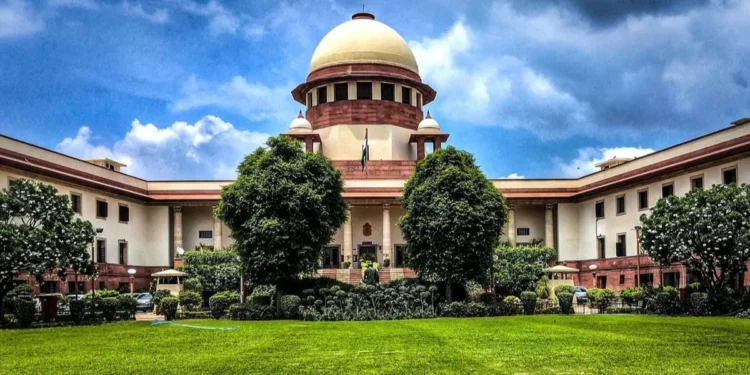Lagatar24 Desk
New Delhi: The Supreme Court of India on Monday firmly rejected fresh petitions challenging the Places of Worship Act, 1991, stating that the court will not entertain any more pleas on the matter. Chief Justice of India (CJI) Sanjiv Khanna expressed frustration over the continuous influx of petitions, declaring, “Enough is enough. There has to be an end to this.”
However, the apex court allowed an intervention petition with additional grounds but refused to issue notices on new petitions filed so far.
Significance of the Case
The Places of Worship Act, 1991, prohibits the conversion of religious sites from the status they held on August 15, 1947, barring any lawsuits to reclaim places of worship or alter their religious character. The Ram Janmabhoomi-Babri Masjid dispute was exempted from this law.
Legal battles have intensified over the Shahi Idgah-Krishna Janmabhoomi, Kashi Vishwanath-Gyanvapi Mosque, and Sambhal mosque disputes, leading to multiple petitions seeking the reclamation of temples allegedly demolished in the past.
The original petition challenging the validity of the law was filed by BJP leader Ashwini Kumar Upadhyay, but in 2023, the Supreme Court halted proceedings in 18 lawsuits filed by Hindu groups seeking to reclaim 10 mosques, deciding to club all related cases together.
Political and Legal Implications
The issue has sparked strong political reactions, with opposition parties such as the Congress and Asaduddin Owaisi’s AIMIM urging the Supreme Court to uphold the law to maintain communal harmony. Meanwhile, Hindu groups and right-wing organizations have opposed the act, calling for its revocation.
A petitioner on Monday’s hearing argued that the law should remain in force to ensure peaceful coexistence in the country.
Supreme Court’s Stand
CJI Khanna clarified that while new intervention petitions may be considered, there must be a limit to such filings. Senior advocate Vikas Singh, representing the petitioners, also pointed out that a reply from the Centre on the matter is still awaited.
The next hearing on the case has been scheduled for the first week of April.







